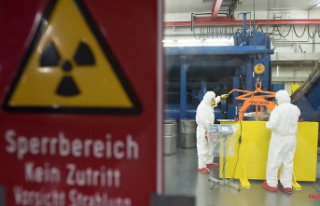Düsseldorf/Neuss (dpa/lnw) - In the collective bargaining dispute in the North Rhine-Westphalian metal and electrical industry, the fourth round of negotiations also ended on Thursday evening without a result. IG Metall held the employers responsible and spoke of "irresponsible immobility". The employers explained that the talks were "although constructive, but at the same time very difficult". A new hearing date was initially not agreed. Further warning strikes in Krefeld, Lübbecke and Drolshagen are planned for Friday.
The union announced that the IG Metall board of directors will decide on Monday evening how to proceed in the collective bargaining round. "If there are no signals at the weekend that employers will finally move in the coming week, the escalation of the collective bargaining round is inevitable," it said in a statement.
Arndt G. Kirchhoff, President of the Metal Employers' Association of North Rhine-Westphalia and chief negotiator for employers, explained that the overall negotiating situation was difficult, "but not deadlocked either". With the offer presented in the third round of negotiations, the employers have opened up the "collective bargaining toolbox". With a "smart combination" of all instruments, a quick and sustainable agreement without further escalation should be possible. Kirchhoff referred to a fifth negotiation date on November 17 that had already been agreed in the Baden-Württemberg collective bargaining area.
In the nationwide regionally conducted negotiations, the employers had each offered one-off payments of 3,000 euros and an unspecified increase in the wage tables for a period of 30 months. IG Metall is demanding eight percent more money for the approximately 3.9 million employees nationwide for a period of twelve months. Around 700,000 people are employed in the sector in NRW.












